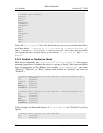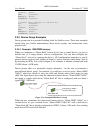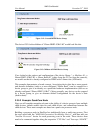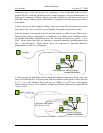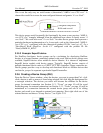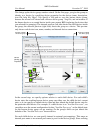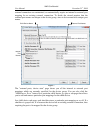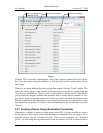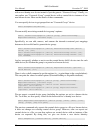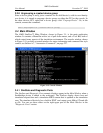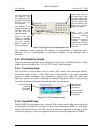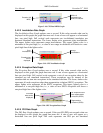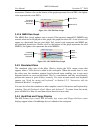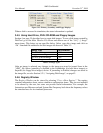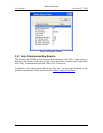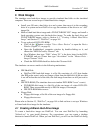
AMD Confidential
User Manual November 21
st
, 2008
28 Chapter 3: Graphical User Interface
with a new identity as a device instead of just the generic “Unnamed Group”. Finally, we
can replace our “Unnamed Group” created device with a created device instance of our
new known device. Here are the details of these commands:
You can specify devices to get grouped into an “Unnamed Group” device:
shell.GroupDevices[devices]
We can modify an existing created device group‟s options:
shell. SetDeviceGroupOption [device group] [ExternalPortMap |
ExportDeviceState] [variable args]
Specifically, we can add, remove, and rename the internal-to-external port mappings
between a device child and its parent device group:
shell.SetDeviceGroupOption [device] ExternalPortMap Add [device
child] [in] [out]
shell.SetDeviceGroupOption [device] ExternalPortMap Delete [out]
shell.SetDeviceGroupOption [device] ExternalPortMap Rename [out]
[out renamed]
And we can specify whether or not to use the created device child‟s device state for each
child device (for if/when the group is exported as a known device):
shell.SetDeviceGroupOption [device] ExportDeviceState [optional
child device] [0|1]
There is also a shell command to get the options (ie – to print them to the console/stdout).
This can print the values for either options (ExternalPortMap or ExportDeviceState):
shell.GetDeviceGroupOption [device group] [ExternalPortMap |
ExportDeviceState] [variable args]
shell.GetDeviceGroupOption [device group] ExternalPortMap
[optional: child device]
shell.GetDeviceGroupOption [device group] ExportDeviceState
[optional: child device]
We can export a created device group (including the options we set) to a known device
file. To do this, we also specify values for the known device‟s identity as a device:
shell.ExportDeviceGroupToFile [device group] [name] [desc] [icon]
[help] [flags] [bsg file path]
The previous command only exports the created device group to a file as a known device;
it does not change our existing created device group. However, after we export our
created device to a file, we can then replace our created device with an instance of the
device we exported. By doing this, we give our device a new device identity:
shell.SwapDevice [created device] [known device]



